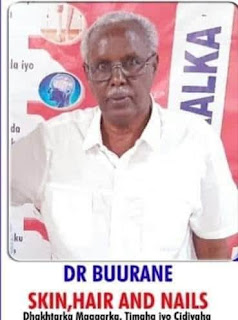English: On-Campus & Online Classes for Academic Writing are Available!
QETC Academic Writing – English Course (AWEC) is a four-month program, tailored to aid students to improve their technical, academic, and professional writing skills. Its curriculum is primarily designed to meet the needs of university students, local and international NGO workers, marketers, secretaries, corporate officials, et cetera.
On-Campus Academic Writing – English Course
LEVEL: Upper-Intermediate and Advanced
CREDIT HOURS: 32 hours
COURSE CODES: AWEC 201 and 202
NO. OF SEMESTERS: TWO (2) NO. OF CLASSES PER SEMESTER: 16 Course
Course Schedule
1. Thursday (29/04/2021) to Monday (6/05/2021): Registration and Payment
2. Saturday (8/05/2021: Diagnostic test will be conducted
3. Sunday, 09/05: Orientation and First Class
Venue: Addis Ababa Medical University, Ali Jirde Hotel Area.
Course duration: 4 months
Payment is $200 which means $50 per month.
We receive payments per semester and since this course is one semester, you are required to pay at once but if you find this difficult, you can pay twice ($100 on two occasions).
Description and Objectives:
About Qalam Educational and Technical Center (QETC) is an international recognized academic institute with partnership with JP International Examinations in the UK and AlMadina International University in Malaysia.
The institute offer diploma and certificate courses in the areas of English language (i.e. UK Functional English, Applied Spoken English, English for Doctors, English for Journalist, Academic Writing, IELTS, TOEFL and SAT preparation, etc.), Journalism and ICT. It is the only college in the country where all academic staff are professionals with foreign exposure.
The main campus of QETC is located at Total Area, Jiciir Road in Hargeisa, Somaliland. Instructor: All instructors/lecturers at QETC are specialists who have got either PhDs, Masters or Bachelor’s degree in education or English language with over 10 years of teaching experience.
Course Description: QETC Academic Writing – English Course (AWEC) is a four-month program, tailored to aid students to improve their technical, academic and professional writing skills. Its curriculum is primarily designed to meet the needs of university students, local and international NGO workers, marketers, secretaries, corporate officials, et cetera.
Certification: All participants who successfully complete the course will be awarded a diploma in Academic Writing.
Learning Outcome
By the end of the course, students will be able to:
Understand the expectations for reading and writing assignments in university courses
Use technical academic writing tools effectively and efficiently
Correct errors in any given academic writing task(s)
Understand and apply general strategies to complete university-level reading assignments efficiently and effectively
Recognize specific types of writing assignments frequently included in university courses Understand and apply general strategies for managing university-level writing assignments
Determine specific reading and writing strategies that work best for you individually
Evaluation Elements:
Individual writing assignments (3 assignments worth 10% each)
❀ Individual writing assignments = 30%
❀ Attendance and class participation= 10%
❀ Group presentation (2 per semester)= 20%
❀ Monthly and final exams (3 monthly exams and 1 final exam per semester) =40%
❀
Total = 100%Note that over 80% of the total grade will be based on individual assignments and monthly assessments, and 30% on group presentation. Learners who demonstrate advanced productive skills in the use of technical writing tools like punctuation, spelling, sentence structure, text structure, grammar and vocabulary will receive good grades.
Requirements for Graded Work:
1. Presentations/Participation:
Group Presentation: The purpose of group work is to enhance your skill in working collaboratively. When a group-based assignment forms part of your evaluation for a grade, all members of the group will receive the same grade. Any exception to this policy, such as adjustments for relative contribution, will be specified in writing prior to the grading of the assignment.
Individual assignment: The individual assignment or work grade will be based on in-class innovative and applied oral and written responses to given tasks, which encourages audience active participation throughout.
Note: Students are expected to attend all classes in which they are enrolled. Attending class is an important part of the learning process in this course. Attendance exposes you to material not in the readings, to your classmates' insights and helps clarify material that can lead to better performance in the course. Students with unexcused absences from more than one class session will be penalized with a reduction of 5% of the presentation component. More than five absences will result to 20% off the individual assignment component. And the penalty for having more than four (4) absences monthly is denial to sit monthly and final exams.
2. Classwork: Please note that just submitting your assignments is not enough to warrant a full grade. You must ensure your work is academically and creatively presented (where and when necessary) in order to gain full marks.
3. End of the Month and Final Exams: this covers 40% of the total grades.
COURSE OUTLINE COURSE CONTENTS
First Semester – AWEC 201
1. An overview of English Grammar – From Morpheme to Sentence
2. Sentence Faults and Structures
3. Standard Paragraph writing: Types and Structure
4. Academic Writing Process
5. Academic Writing Structure/Outline
6. Essay and Its Types –
Expository, Descriptive, Narrative and Argumentative
6. Plagiarism
7. Paraphrasing and Quotations
8. Citation
9. Referencing/Bibliography
10. APA vs MLA
11. Note making and summary writing
12. Minutes Writing Mid-Semester Examination and Feedback
Second Semester - AWEC 202
13. Correspondence:
Memo Writing Official Letter and Email
14. Standard CV/Resume Writing
15. Interview
16. General Report writing
17. Academic Report Writing
18. Field Report Writing
19. Project Proposal Writing
20. Standard Technical Writing Skills
21. Editing of Academic Texts
22. Final Exams
23. Computation of Results and Feedback
For further enquiries, contact: 063-4338868, 0633330094, or email us at info.qetc@gmail.com
Mutiu Olawuyi,
Executive Director, Qalam Educational & Technical Center (QETC), Hargeisa, Somaliland.
E-mail: e.director@qalamedutech.com, Website: www.qalamedutech.com






